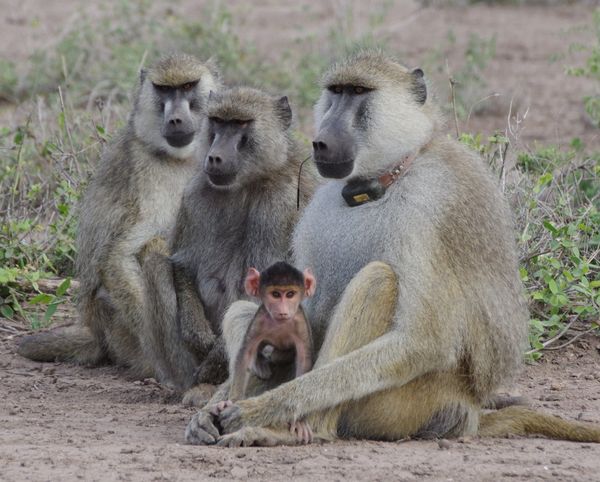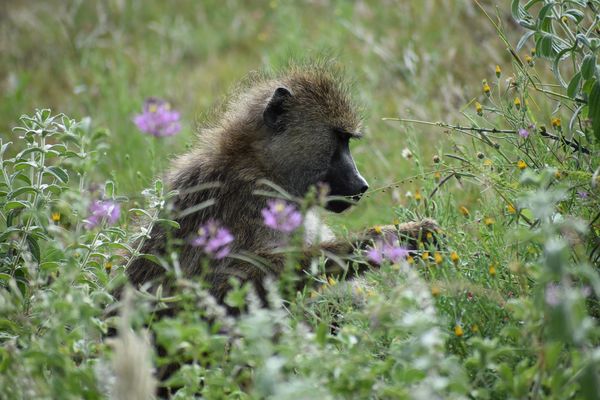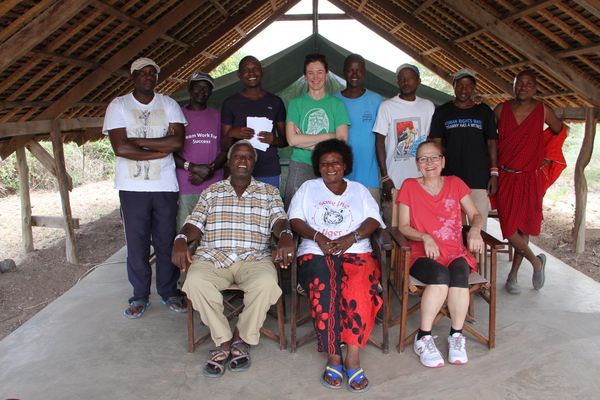Kenya
Amboseli Baboon Research Project

The Amboseli Baboon Research Project (ABRP) is one of the longest-running studies of wild primates in the world. Focused on the savannah baboon, Papio cynocephalus, ABRP is located in the Amboseli ecosystem of East Africa, north of Mt. Kilimanjaro. We track hundreds of known individuals in several social groups over the course of their entire lives. We currently monitor around 300 animals, but over the last five decades we have accumulated life history information on over 1,500 animals. Research at ABRP has long centered on processes at the individual, group, and population levels, and in recent years has also included other aspects of baboon biology, such as genetics, hormones, nutrition, hybridization, parasitology, and relations with other species. Over the last decade, major research questions have included:
- How does an individual’s social context shape their morbidity and mortality?
- How do early life experiences, especially harsh conditions in early life, shape health and survival outcomes in adulthood?
- Why do some animals age faster than others?
- What are the dominant drivers of gut microbiome dynamics, and do these dynamics predict biodemographic markers of health?
- How do gut microbes spread in socially structured populations?
Research Focus
-
Epidemiology
At the EIGH, our researchers use epidemiology to understand the distribution and determinants of the health and disease conditions in specific populations, and to identify risk factors for certain diseases. This allows them to develop, implement, and measure the impact of targeted, preventative healthcare methods.
-
Genetics and Genomics
One way to study certain diseases is through genetics - the study of heredity and the variation of individual inherited genes in an organism. At the EIGH, this means studying how organisms can inherit and spread certain diseases. Additionally, by analyzing the entire structure, function, and evolution of an organism's genes, researchers may identify ways to prevent a disease from genetically passing disease traits.
-
Molecular Biology and Microbiology
Researchers at the EIGH use microbiology, which encompasses the study of an entire microorganism, and molecular biology, or the interactivity between molecules within a cell of an organism, to better understand disease and improve global health.
-
Non-communicable Diseases
The EIGH conducts research to fight a number of diseases and conditions around the world. This includes non-communicable diseases or chronic illnesses, including cardiac conditions and cancer.
Who’s Involved
EIGH Faculty
GLOBAL PARTNERS
- Duke University
- Institute of Primate Research
- Kenya Wildlife Service
- Princeton University
UNIVERSITY OF NOTRE DAME PARTNERSHIPS
- Environmental Change Initiative
Additional Information
Publications
Miscellaneous Authors. https://amboselibaboons.nd.edu/publications/


